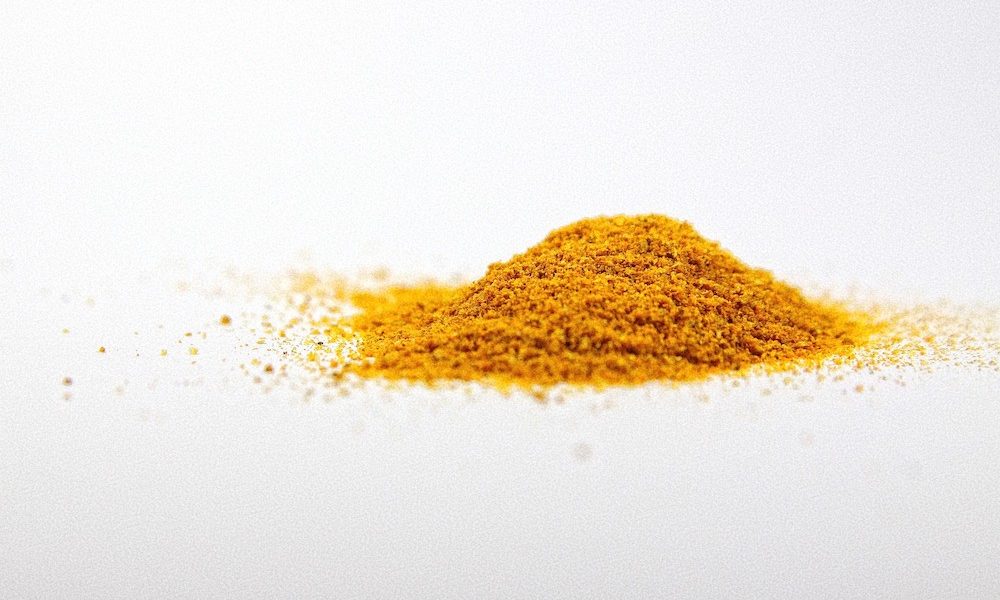Known for its potent anti-inflammatory properties, turmeric has the potential to help improving the recovery and performance of athletes. Here’s what the science has to say.
BY: MARITA RADLOFF, MS, RDN, CSSD, LD
Athletes have long been turning to supplements to further performance, using products like protein powder to enhance muscle growth or sports drinks for recovery. But some athletes have recently been turning to the spice rack and reaching for turmeric for its many health benefits.
Turmeric is traditionally used in Indian dishes, like curry, for a boost of flavor of warm and peppery notes. Although it has been around for thousands of years, turmeric only recently became mainstream in the U.S.; you can now find turmeric teas, lattes, and turmeric shots at your grocery store or coffee shop.
But did you know that turmeric’s health benefits can affect your athletic performance?
Emerging research is showing that it can help with athletic recovery, and it has to do with its effect on inflammation. Inflammation is your body’s response to stress, including physical stress like strains or over-worked muscles, food allergies, and exposure to pollutants or emotional stress. This response is part of your body’s natural healing process and isn’t always negative.
After a tough workout, inflammation responds by healing the “damage” to the tissues you just worked. This is a good thing, since working out causes micro-tears in your muscles, and the healing that inflammation provides is what helps with muscle growth.
However, repetitive physical stress, like working out without taking a day off, tough practices, or long hours spent in the gym can lead to the release of free radicals. Free radicals can cause damage to your cells and DNA, along with exhaustion, muscle degradation, being more prone to injuries, and even aggravate chronic conditions such as arthritis.
So where does turmeric play into all of this?
Curcumin, the active compound of turmeric, may help reduce the repetitive trauma, inflammation, and pain that training can cause.
Turmeric is a powerful antioxidant, and antioxidants help to remove those damaging free radicals. Some studies have shown just how beneficial turmeric can be for athletes. One study found that muscle soreness and damage was reduced after an intense exercise session when subjects took curcumin. This means faster recovery from hard workouts, which leads to more consistent training and higher intensity levels, leading to increased performance.
Another study also confirmed curcumin supplementation can decrease exercise-induced oxidative stress. Researchers in a small study even found a reduction in psychological stress during exercise when taking curcumin supplements, with participants saying they felt less stressed during training days even though their Rate of Perceived Exertion (RPE) was the same as the placebo group.
So how much turmeric do you need to see results?
Studies have found that taking 1 gram of curcumin daily for 8 to 12 weeks reduced arthritis symptoms as well as taking ibuprofen. This is about ¼ cup of turmeric daily, which is more than you would get in foods that have turmeric in them, like curry. But even 180 mg/day (about ½ tbsp turmeric) reduced pain in people with knee arthritis in less than 8 weeks.
It’s important to note that most of these studies have looked at the effects of supplemental curcumin that has been extracted from turmeric, rather than consuming turmeric with other foods. However, you can still reap the benefits of turmeric when including it in foods and drinks, but if you’re looking for long-term anti-inflammation, taking a supplement may be your best bet.
Turmeric is also not well absorbed by the body, and requires a helper to be absorbed; either black pepper or a fat, such as coconut oil or butter. For long training cycles, a daily turmeric supplement may help reduce muscle soreness and joint stiffness so you can bounce back faster.
So how do you include turmeric in your diet?
Luckily, turmeric is easy to find in the spice aisle of your grocery store and might already be a key ingredient in some of your favorite Asian dishes, such as Indian recipes like dal or tikka masala. Recently, turmeric is cropping up in drinks in the form of shots or golden milk lattes! Golden milk has been part of Eastern medicine tradition for years and can now be found in your local coffee shop or supermarket.
You’ll often see golden milk and turmeric lattes with fat added, such as coconut oil, to increase the absorption of turmeric in your system. In teas or shots, you’ll find that pepper has been added for increased absorption. Adding black pepper to tea or a smoothie may not sound appetizing, but you don’t need to add a ton to improve absorption, and it adds a nice kick!
If you’re struggling with recurring injuries or exhaustion, give turmeric a try and see how it works for you.
Adapted from the original article.
HEADER IMAGE: J.W. VEIN
Marita Radloff, MS, RDN, CSSD, LD is a Board Certified Sports Dietitian teaching athletes how to fuel for their sport without restrictive diets. Marita believes everyone is an athlete, no matter the level of fitness. She strives to teach athletes how to fuel for performance, recovery, and endurance while still enjoying the foods they love without the confines of a diet. You can find and connect with her at Marita Radloff Nutrition.


Dear Marita, thank you for an excellent article. But if inflammation is needed for repairing muscles after workouts, won’t turmeric and curcumin limit this needed inflammation and impair muscle growth?